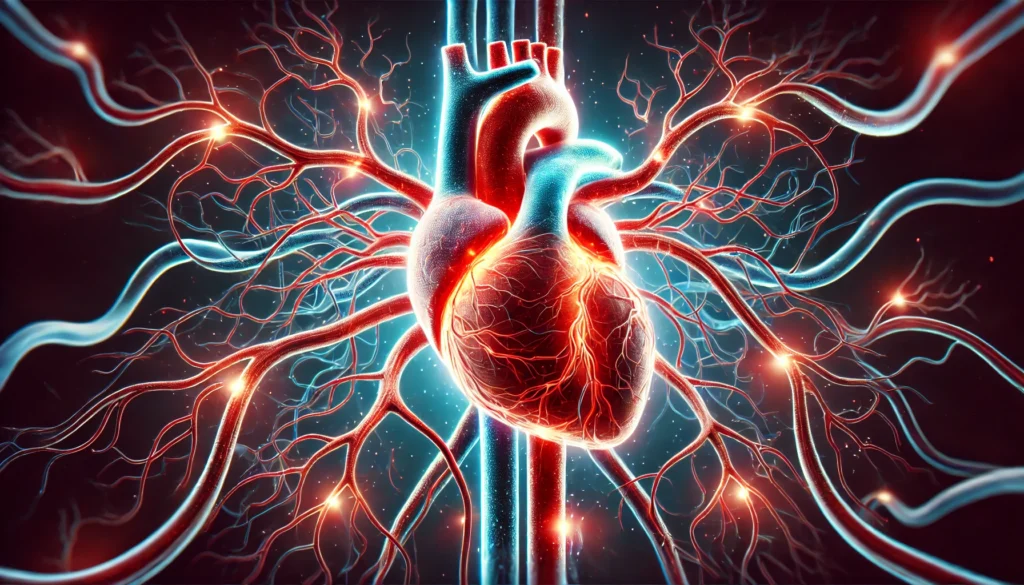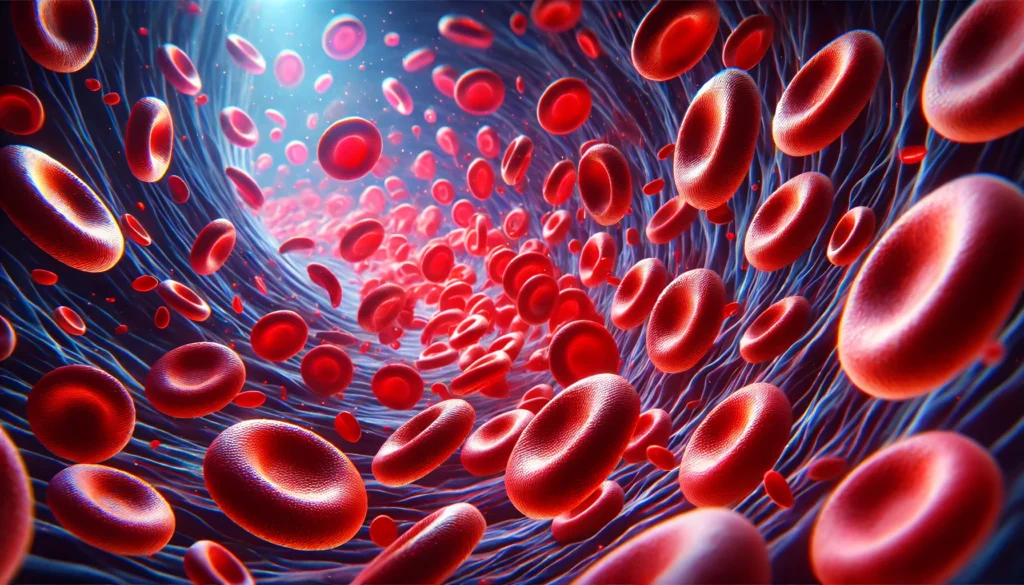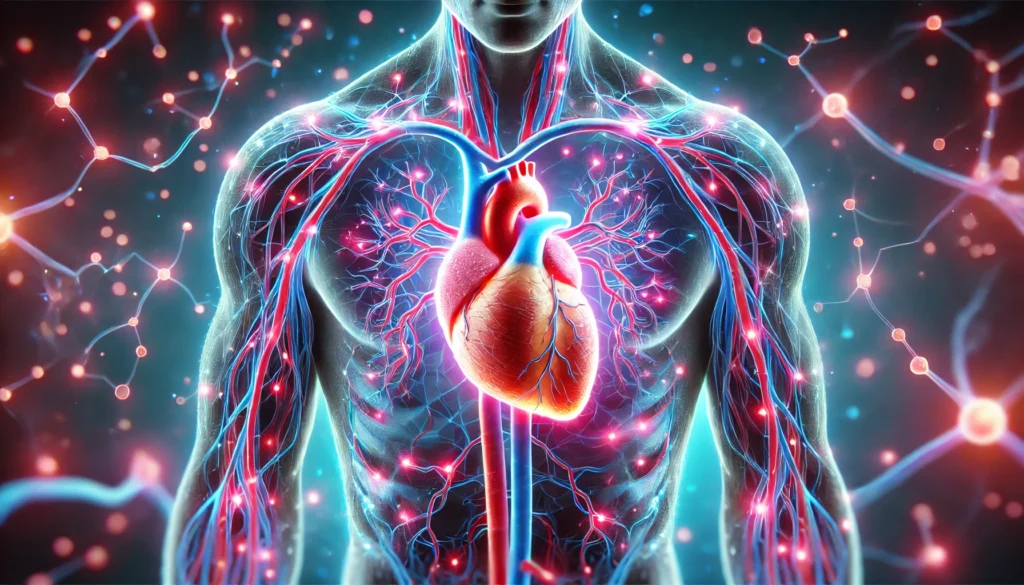Introduction
The cardiovascular system is one of the most vital components of human physiology, responsible for delivering oxygen and nutrients to tissues while removing waste products. Despite its critical role, many people are unaware of the intricacies that keep the heart and blood vessels functioning optimally. Understanding key cardiovascular facts can empower individuals to make informed decisions about their health, potentially extending their lifespan and improving their quality of life. Recent medical research discoveries have shed new light on heart health, revealing fascinating insights that can help individuals take proactive steps toward maintaining cardiovascular well-being. In this article, we will explore ten surprising facts about the cardiovascular system that not only highlight its complexity but also provide practical ways to enhance heart health.
You may also like: 5 Modern Treatments for Heart Disease: Advancements in Cardiac Care
The Heart Pumps More Than Just Blood
While the primary function of the heart is to circulate blood, it also plays a crucial role in regulating various physiological processes. Each day, the heart beats approximately 100,000 times, pumping around 2,000 gallons of blood throughout the body. This relentless activity ensures that every organ receives the necessary oxygen and nutrients to function properly. However, beyond its mechanical role, the heart interacts with the endocrine system by releasing atrial natriuretic peptide (ANP), a hormone that helps regulate blood pressure and fluid balance. Understanding these cardiac facts underscores the importance of maintaining a healthy heart, as its impact extends beyond circulation to influence systemic functions.
Moreover, heart rate variability (HRV) has been identified as a key indicator of overall cardiovascular health. HRV refers to the variation in time between consecutive heartbeats, and a higher HRV is associated with better autonomic nervous system regulation. This means that individuals with greater HRV tend to have improved stress resilience and lower risks of cardiovascular diseases. Strategies such as meditation, deep breathing exercises, and regular physical activity have been shown to enhance HRV, ultimately supporting heart health. Thus, fostering a deeper appreciation for the cardiovascular system’s complexity can lead to more conscious efforts to maintain its function.

The Heart Communicates With the Brain
The cardiovascular system and the brain are intricately connected, with the heart sending more signals to the brain than vice versa. This bidirectional communication occurs through the vagus nerve, which regulates heart rate and blood pressure in response to emotional and physiological stimuli. Research has shown that emotions such as stress, anxiety, and depression can negatively impact heart health by increasing inflammation and promoting arterial plaque buildup. Conversely, positive emotions and social connections have been linked to improved cardiovascular outcomes, emphasizing the role of mental health in heart disease prevention.
One fascinating aspect of this communication is the concept of “heart coherence,” a state in which heart rhythms become more synchronized with breathing patterns and positive emotions. Achieving heart coherence through practices like mindfulness and gratitude exercises has been associated with reduced cortisol levels, improved immune function, and enhanced cardiovascular resilience. These interesting facts about the cardiovascular system highlight the necessity of holistic health approaches that address both physical and emotional well-being. As medical research continues to explore this dynamic relationship, it becomes increasingly clear that maintaining heart health requires more than just a focus on diet and exercise.

Arteries Are More Than Just Blood Vessels
Arteries are often perceived merely as passive conduits for blood flow, but they are far more dynamic than commonly believed. These blood vessels possess muscular walls that can constrict or dilate in response to various stimuli, allowing them to regulate blood pressure and flow distribution. Endothelial cells lining the arteries produce nitric oxide, a molecule that plays a vital role in vascular health by promoting relaxation and preventing clot formation. Dysfunction of the endothelium is a key factor in the development of atherosclerosis, a condition characterized by arterial hardening and plaque accumulation.
An essential yet lesser-known fact about the cardiovascular system is that arterial stiffness is a strong predictor of cardiovascular disease. Factors such as high blood pressure, diabetes, and sedentary lifestyles contribute to arterial rigidity, increasing the risk of heart attacks and strokes. Fortunately, lifestyle modifications such as consuming nitrate-rich foods (e.g., leafy greens and beets), engaging in regular aerobic exercise, and managing stress can enhance arterial flexibility. These cardiac facts reinforce the idea that proactive measures can significantly reduce the likelihood of vascular complications, promoting longevity and overall health.
The Heart Can Adapt and Strengthen Over Time
One of the most encouraging heart health facts is that the heart possesses remarkable adaptability. Unlike most organs, the heart can undergo structural and functional changes in response to physical activity, a phenomenon known as “cardiac remodeling.” Athletes, for instance, develop larger and more efficient hearts due to consistent cardiovascular training. This adaptation allows the heart to pump more blood with each beat, reducing resting heart rate and enhancing overall efficiency.
Conversely, prolonged inactivity can lead to cardiac deconditioning, where the heart weakens over time. Studies have demonstrated that even moderate-intensity exercise can significantly improve cardiac function, regardless of age. Engaging in activities such as brisk walking, cycling, or swimming for at least 150 minutes per week can lower the risk of heart disease, enhance circulation, and improve oxygen delivery to tissues. These compelling facts about the heart underscore the importance of consistent physical activity in maintaining cardiovascular resilience.

Frequently Asked Questions (FAQ) About the Cardiovascular System
1. How does the cardiovascular system adapt to different levels of physical activity?
The cardiovascular system is remarkably adaptive, responding to both acute and chronic changes in physical activity. During exercise, the heart rate increases to deliver oxygen-rich blood more efficiently to muscles, while blood vessels dilate to accommodate increased circulation. Over time, consistent physical activity strengthens the heart muscle, making it more efficient at pumping blood and reducing resting heart rate. This adaptation is particularly significant for endurance athletes, whose cardiovascular systems undergo structural changes that enhance oxygen uptake and utilization. These cardiovascular facts highlight how maintaining an active lifestyle can prevent cardiovascular disease and improve overall heart function.
2. What role do genetics play in cardiovascular health?
Genetics play a crucial role in determining individual susceptibility to various cardiovascular conditions. Some people inherit genes that predispose them to high cholesterol, hypertension, or other cardiac issues, making them more vulnerable to heart disease despite leading a healthy lifestyle. However, while genetic factors influence risk, lifestyle choices such as diet, exercise, and stress management can significantly modify their impact. Advances in genetic testing now allow individuals to assess their inherited cardiovascular risks and take preventive measures accordingly. Understanding these facts about the heart can empower individuals to make informed decisions about their health and seek medical guidance tailored to their genetic profile.
3. How does stress impact the cardiovascular system?
Chronic stress can have a profound effect on heart health, increasing the risk of hypertension, inflammation, and arterial damage. When the body perceives stress, it releases cortisol and adrenaline, which can lead to elevated blood pressure and a faster heart rate. Over time, prolonged exposure to these stress hormones may contribute to plaque buildup in the arteries, raising the likelihood of heart disease. Practicing stress management techniques such as mindfulness, deep breathing, and physical activity can counteract these negative effects. These interesting facts about the cardiovascular system demonstrate how emotional and mental well-being are deeply connected to heart health.
4. Can diet alone improve cardiovascular health?
While no single diet guarantees heart disease prevention, a balanced and nutrient-rich diet plays a fundamental role in cardiovascular well-being. Consuming foods rich in omega-3 fatty acids, fiber, and antioxidants helps reduce inflammation and support healthy blood vessels. The Mediterranean diet, for example, has been widely studied for its cardiovascular benefits, emphasizing whole foods like fish, nuts, olive oil, and leafy greens. Additionally, reducing processed foods, excessive sodium, and added sugars can prevent conditions such as hypertension and high cholesterol. These heart health facts reinforce the importance of mindful eating in maintaining a strong and resilient cardiovascular system.
5. How do environmental factors influence cardiovascular health?
Environmental influences such as pollution, air quality, and exposure to toxins can significantly impact cardiovascular function. Long-term exposure to airborne pollutants has been linked to increased risks of hypertension, heart attacks, and stroke. Poor air quality can contribute to oxidative stress and inflammation, which weaken blood vessels and compromise circulation. In response, lifestyle adjustments such as exercising indoors on high-pollution days and using air purifiers can mitigate some of these risks. These cardiac facts emphasize the broader societal and environmental considerations that affect heart health beyond personal lifestyle choices.
6. Is there a connection between sleep and cardiovascular health?
Sleep quality is a critical but often overlooked factor in maintaining cardiovascular health. Insufficient sleep, especially in the form of chronic sleep deprivation, has been associated with elevated blood pressure, increased heart rate, and greater risks of heart disease. Sleep apnea, a condition characterized by interrupted breathing during sleep, can further strain the heart and lead to long-term complications. Prioritizing good sleep hygiene, such as maintaining a consistent sleep schedule and creating a restful environment, can support cardiovascular function. These fun facts about the cardiovascular system highlight the role of rest in promoting overall heart health.
7. Can heart disease be reversed through lifestyle changes?
While some cardiovascular damage may be irreversible, scientific research has shown that lifestyle interventions can significantly improve heart health and, in some cases, reverse early signs of disease. Engaging in regular physical activity, adopting a heart-healthy diet, and managing stress have all been linked to improved arterial function and reduced plaque buildup. Programs such as those developed by Dr. Dean Ornish have demonstrated that comprehensive lifestyle modifications can lead to measurable improvements in heart disease patients. These facts about the cardiovascular system reveal the potential for proactive health choices to make a meaningful difference in long-term well-being.
8. How does hydration affect cardiovascular function?
Proper hydration is essential for maintaining optimal blood viscosity and circulation. When the body is dehydrated, blood thickens, forcing the heart to work harder to pump it through the vessels. Chronic dehydration can contribute to increased blood pressure and a higher risk of clot formation, both of which are detrimental to cardiovascular health. Drinking adequate water daily helps maintain electrolyte balance and supports overall heart function. These interesting facts about the cardiovascular system demonstrate why hydration should be a fundamental part of heart health management.
9. What impact does aging have on the cardiovascular system?
Aging naturally brings changes to the cardiovascular system, including reduced elasticity of blood vessels and a gradual decline in heart efficiency. Over time, arteries may stiffen, increasing the likelihood of hypertension and other cardiovascular conditions. However, regular exercise, a balanced diet, and preventive healthcare can slow these aging-related effects. Scientific research suggests that individuals who remain active well into old age maintain better cardiovascular function than their sedentary counterparts. These heart health facts highlight the importance of proactive aging strategies to sustain a healthy cardiovascular system.
10. How does social interaction influence heart health?
Strong social connections have been linked to better cardiovascular outcomes, while loneliness and social isolation are associated with increased heart disease risk. Studies suggest that individuals with strong support networks tend to have lower blood pressure, reduced inflammation, and healthier heart rhythms. Engaging in meaningful relationships and social activities can boost emotional well-being and contribute to long-term heart health. Volunteering, joining community groups, or maintaining close friendships can be powerful protective factors against heart-related illnesses. These cardiac facts illustrate how emotional and social well-being are deeply intertwined with cardiovascular health.
Conclusion
The cardiovascular system is an intricate network that extends far beyond the simple function of pumping blood. Each of the ten surprising facts discussed in this article illustrates how maintaining heart health involves a combination of physical, emotional, and lifestyle factors. From the heart’s ability to communicate with the brain to the adaptability of arteries and the influence of nitric oxide on vascular function, these insights highlight the complexity and resilience of the cardiovascular system.
By integrating knowledge from cutting-edge medical research discoveries, individuals can take actionable steps to optimize their cardiovascular health. Implementing practices such as regular exercise, stress management, a heart-healthy diet, and fostering social connections can collectively contribute to longevity and well-being. As scientific advancements continue to unveil new dimensions of heart health, staying informed and proactive remains essential for preventing cardiovascular diseases and enhancing quality of life.
With the increasing prevalence of heart-related conditions worldwide, understanding and applying these heart health facts can empower individuals to make choices that support long-term wellness. By valuing the intricate functions of the cardiovascular system and adopting evidence-based strategies, people can ensure that their heart remains strong, resilient, and capable of sustaining them through life’s many challenges.
heart circulation system, cardiovascular health tips, blood flow improvement, maintaining heart function, vascular system facts, healthy arteries and veins, heart disease prevention, strengthening the heart, cardiac wellness strategies, optimal heart rate management, oxygen transport in the body, improving cardiovascular endurance, heart muscle efficiency, arterial health awareness, blood pressure regulation tips, lifestyle changes for heart health, reducing heart disease risk, effects of stress on the heart, exercise benefits for circulation, nutrition for a strong heart
Further Reading:
10 Ways to Improve Your Heart Health Infographic
Strategies to prevent heart disease
Disclaimer
The information contained in this article is provided for general informational purposes only and is not intended to serve as medical, legal, or professional advice. While MedNewsPedia strives to present accurate, up-to-date, and reliable content, no warranty or guarantee, expressed or implied, is made regarding the completeness, accuracy, or adequacy of the information provided. Readers are strongly advised to seek the guidance of a qualified healthcare provider or other relevant professionals before acting on any information contained in this article. MedNewsPedia, its authors, editors, and contributors expressly disclaim any liability for any damages, losses, or consequences arising directly or indirectly from the use, interpretation, or reliance on any information presented herein. The views and opinions expressed in this article are those of the author(s) and do not necessarily reflect the official policies or positions of MedNewsPedia.


